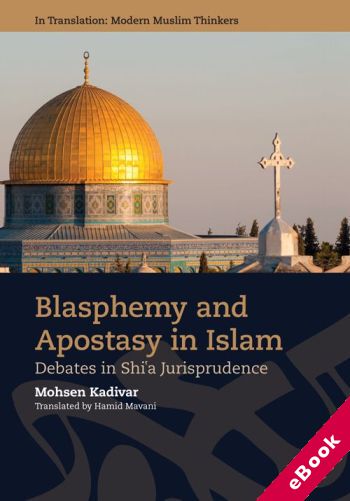
The device(s) you use to access the eBook content must be authorized with an Adobe ID before you download the product otherwise it will fail to register correctly.
For further information see https://www.wildy.com/ebook-formats
Once the order is confirmed an automated e-mail will be sent to you to allow you to download the eBook.
All eBooks are supplied firm sale and cannot be returned. If you believe there is a fault with your eBook then contact us on ebooks@wildy.com and we will help in resolving the issue. This does not affect your statutory rights.
Published in Association with the Aga Khan University Institute for the Study of Muslim Civilisations, take a front-row seat to the debate on blasphemy and apostasy in Islam.
Is it lawful to shed the blood of someone who insults the Prophet Muhammad? Does the Qu’ran stipulate a worldly punishment for apostates? This book tells the gripping story of Rāfiq Taqī, an Azerbaijani journalist and writer, who was condemned to death by an Iranian cleric for a blasphemous news article in 2006.
Delving into the Qu’ran and Hadith – the most sacred sources for all Muslims – Mohsen Kadivar explores the subject of blasphemy and apostasy from the perspective of Shi’a jurisprudence to articulate a polarisation between secularism and extremist religious orthodoxy. In a series of online exchanges, he debates the case with Muhammad Jawad Fazel, the son of Grand Ayatollah Fazel Lankarānī who issued the fatwa pronouncing death penalty on Taqī. While disapproving of the journalist’s writings, Kadivar takes a defensive stance against vigilante murders and asks whether death for apostasy reflects the true spirit of Islam.